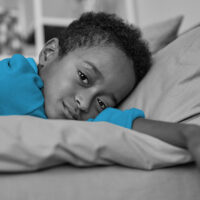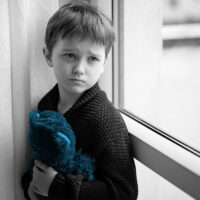Researcher / Academic
-

Interventions for Sibling Mental Health Conditions: New Systematic Review Shows Lack of Evidence
This blog offers a summary of the findings and implications of a recent systematic review of studies looking at the effectiveness of interventions for young people with sibling mental health conditions. Only four papers were included in this review, highlighting the lack of evaluations for interventions supporting these young people.
Read more -

Unlocking the Potential of Parenting Programs: How Financial Incentives Can Drive Engagement
Parenting programs are vital tools for addressing disruptive behaviours in children, yet low participation rates undermine their potential. Our recent research highlights that financial incentives can boost engagement, particularly among underserved families, and suggests new directions for increasing the accessibility and effectiveness of these programs.
Read more -

Neurodiversity: Cutting-Edge Research, Evolving Perspectives, and Effective Innovations – 2025 Jack Tizard Memorial International Conference
BOOKINGS CLOSED
- Event type
- Jack Tizard Memorial International Conference
- Location
- LIVE STREAM
-

Why do some children from low-income families manage to thrive cognitively?
Why do some children from low-income families manage to thrive cognitively? Our study sheds light on this question by identifying key factors that promote cognitive resilience. Blog by Dr. Divyangana Rakesh.
Read more -

TeaLeaF- task shifting children’s mental health care to primary school teachers in the Darjeeling Himalayas of West Bengal, India
TeaLeaf-Mansik Swastha (Teachers Leading the Frontlines- Mental Health) is a research-led community-based intervention which sees the “shifting” of mental health care to primary school teachers in the Darjeeling Himalayas of West Bengal using evidence-based therapy techniques.
Read more -

Insomnia: Assessment, Treament, Results
Join renowned expert child and adolescent psychiatrist Dr. Jess Shatkin for insights and guidance on managing insomina in children and young people. Healthcare professionals attending will enhance their skills in diagnosing and treating sleep disorders, gain insights into how improving sleep can positively impact psychiatric functioning and overall wellbeing, and contributing to ongoing professional development.
- Event type
- Introductory and Update Session
- Location
- LIVE STREAM
-

Shore: a safe place for young people worried about sexual behaviour
Children and young people engaging in harmful sexual behaviour is a national public health issue, affecting thousands of young people across the UK every year. Despite this, there are few services available to support young people once harm has taken place and even fewer for young people concerned about their own or someone else’s sexual thoughts, feelings or behaviour.
- Event type
- Talk with Q&A
- Location
- LIVE STREAM
-

International Women’s Day #AccelerateAction: Accelerating gender equality in psychological research and psychiatry
On March 8th, 2025, the world is celebrating the 104th International Women’s Day, a tradition that began in 1911. This year’s International Women’s Day focuses on the theme of “Accelerate Action”, which highlights the urgency for dismantling systematic barriers that hinder women’s full participation in various research fields – including psychology and psychiatry.
Read more -

Trauma Informed Care – Understanding the challenges, and the pragmatic steps which need to be taken to operationalise and deliver Trauma Informed Care across services
‘Trauma Informed Care – Understanding the challenges, and the pragmatic steps which need to be taken to operationalise and deliver Trauma Informed Care across services’ is ACAMH’s inaugural ACE’s SIG day conference.
- Event type
- Day Conference
- Location
- LIVE STREAM
-
 12
12
Protected: Beyond Words – An exploration of the mental health of children and young people with severe and profound learning disabilities
There is no excerpt because this is a protected post.
- Location
- Edinburgh